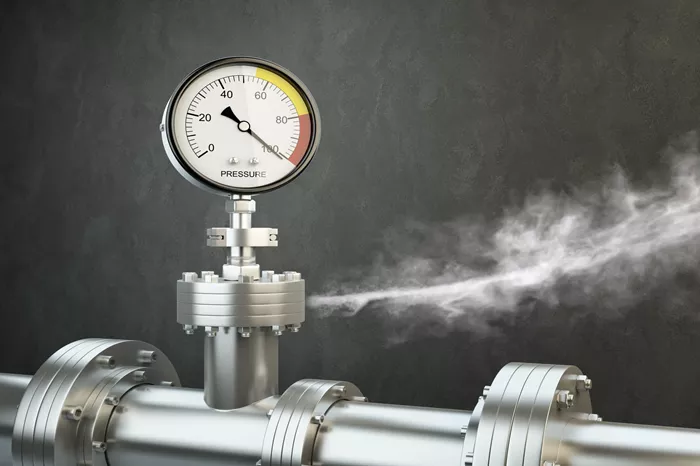The smell of leaking gas can be a cause for concern, and understanding how to identify it is crucial for safety. Gas leaks pose various dangers, including the risk of explosion, fire hazards, and potential health issues from inhaling toxic fumes. This article covers everything from what leaking gas smells like, to how to respond to potential gas leaks, to the health effects and safety steps you should take to protect yourself, your family, and your property.
What Is Gasoline, and How Does It Smell?
The Composition of Gasoline
Gasoline, a derivative of crude oil, is a blend of hydrocarbons that power vehicles and machinery. Made from petroleum, it has a distinct smell that many people recognize immediately.
The Odor of Gasoline and its Characteristics
Gasoline has a sharp, pungent smell that can be slightly sweet or solvent-like. This distinct aroma is due to additives like benzene, which is often described as both “sweet” and “acrid.”
Identifying the Smell of a Gas Leak in Different Scenarios
Common Household Gas Leaks
In homes, natural gas or propane is commonly used for heating, cooking, and other applications. Unlike gasoline, natural gas is odorless in its natural state, so companies add a chemical known as mercaptan to give it a sulfuric, “rotten egg” smell that makes it easily identifiable.
Vehicle and Machinery Gas Leaks
Vehicle gas leaks typically produce a strong smell of gasoline, especially when vehicles are idle or have fuel leaks. The odor may be especially noticeable around the vehicle or in enclosed spaces like garages.
Differences Between Gasoline and Natural Gas Leaks
While gasoline smells pungent and sweet, natural gas emits a foul sulfur smell due to the added mercaptan. Recognizing the difference is important to identify the type of gas leak correctly.
Causes of Gas Leaks and the Smells They Produce
Loose Connections and Faulty Equipment
Loose connections or faulty gas lines in home heating systems, stoves, or water heaters are common causes of gas leaks. These leaks emit the added odorant’s smell, typically rotten eggs for natural gas.
Leaks in Fuel Tanks or Lines in Vehicles
Vehicle fuel tanks or fuel lines can wear down over time, causing gas to seep out and release a strong, sweet gasoline smell. Leaks are often more detectable when the car is off and parked.
Why Recognizing a Gas Leak Smell Is Important
Health Hazards Associated with Gas Leaks
Inhaling gas fumes, especially in an enclosed space, can lead to symptoms such as dizziness, nausea, and headaches. Long-term exposure can result in severe health complications, particularly if the gas contains toxic compounds like benzene.
Explosion and Fire Risks
Gas leaks are a significant fire and explosion hazard. Natural gas, gasoline, and propane are highly flammable, and even a minor spark can trigger a serious fire.
What to Do If You Smell Gas
Step 1: Evacuate the Area
If you smell gas indoors, leave immediately without touching any switches or electrical devices. Open windows if possible to help ventilate.
Step 2: Avoid Sparks or Flames
Avoid using phones, lighters, or anything that might create a spark. Static electricity alone can ignite leaking gas if the concentration is high.
Step 3: Call for Professional Help
Once you are at a safe distance, call the local gas company or emergency services to report the leak. Professionals will assess and handle the leak safely.
Preventive Measures to Avoid Gas Leaks
Regular Maintenance of Home Gas Appliances
Regularly inspect and maintain appliances like stoves, heaters, and water heaters to prevent gas leaks. A qualified technician should perform these checks at least once a year.
Inspecting and Maintaining Your Vehicle
Ensure that fuel lines and tanks in your vehicle are routinely inspected for wear and damage. Promptly address any gasoline odors, as they may indicate a leak.
Health Impacts of Prolonged Exposure to Gas Leaks
Short-Term Exposure Symptoms
Brief exposure to gasoline fumes can cause dizziness, nausea, and headaches. These symptoms typically dissipate once you are exposed to fresh air.
Long-Term Health Risks of Gas Exposure
Extended exposure to gasoline fumes, especially those containing benzene, can be carcinogenic and lead to severe health issues over time, including respiratory and nervous system damage.
How to Test for a Gas Leak at Home
Soap and Water Solution Test
For minor suspected leaks, a soap and water solution can reveal gas bubbles, indicating a gas leak. This simple test should only be conducted when safe and should not replace professional help.
Gas Leak Detectors
Gas leak detectors are electronic devices that sense gas leaks, providing an extra layer of safety in homes and commercial spaces. Regularly test these detectors and replace batteries as needed.
Conclusion
Understanding what leaking gas smells like and knowing the proper response can be lifesaving. Gas leaks should never be ignored, as they pose immediate risks to health and safety. By recognizing the distinct odors of different types of gas and taking preventive measures, you can ensure a safer environment in your home or vehicle.
Related topic:
Will a Natural Gas Leak Kill You?

